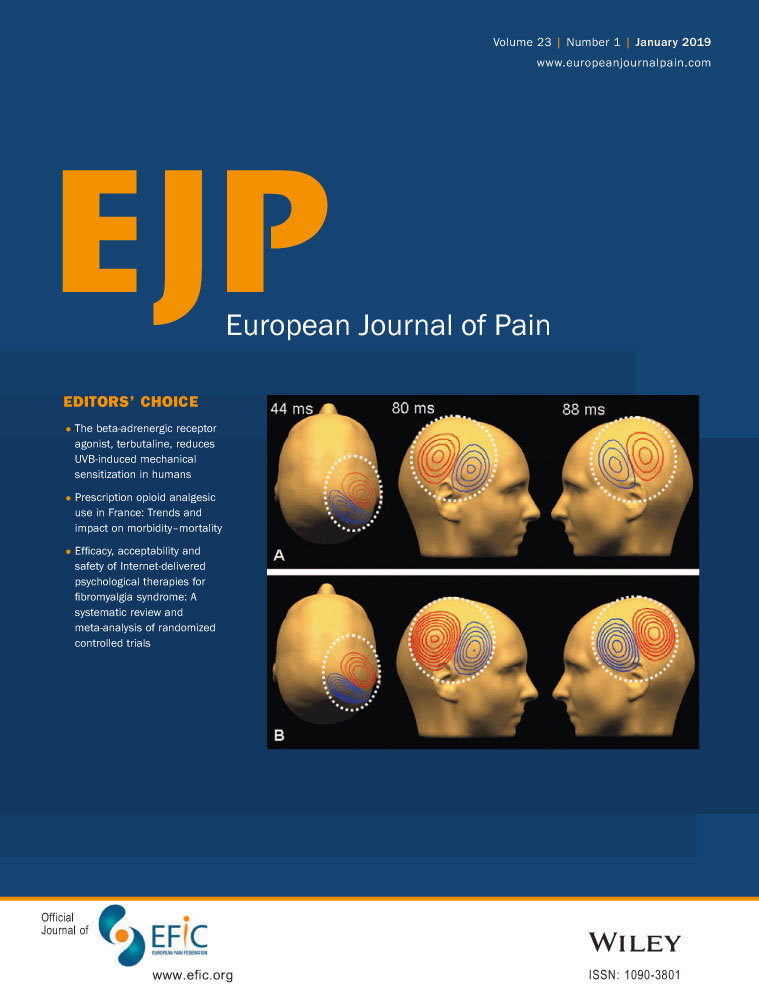Efficacy, acceptability and safety of Internet-delivered psychological therapies for fibromyalgia syndrome: A systematic review and meta-analysis of randomized controlled trials
Funding sources
None.
Conflicts of interest
KB is member of the German FMS guideline group. She is a licensed psychotherapist for cognitive behavioural therapy. PK: None known. PW: None known. WH is head of the steering committee member of the German FMS guideline group and member of the steering committee for the updated recommendations for the management of FMS of the European League Against Rheumatism (EULAR). He is a member of the medical board of the German Fibromyalgia Association. He is a licensed psychotherapist in systemic therapy and hypnosis.
Abstract
This systematic review aimed at evaluating the efficacy, acceptability and safety of Internet-based psychological therapies (IPTs) in fibromyalgia syndrome (FMS). Clinicaltrials.gov, Cochrane Library, MEDLINE, PsycINFO and SCOPUS were searched from inception to January 2018. Randomized controlled trials (RCTs) comparing IPTs with controls were analysed. Primary outcomes were ≥50% pain relief, disability, negative mood, acceptability and safety at end of therapy and at 6-month follow up. Effects were summarized by a random effects model using risk differences (RD) or standardized mean differences (SMD) with 95% confidence intervals (CI). Six RCTs using different types of Internet-based cognitive-behavioural therapies [ICBTs] (acceptance-based; exposure-based; traditional) with 493 patients were included. At the end of treatment, ICBTs were superior to controls (waiting list, attention control, treatment as usual) in reducing negative mood (SMD −0.51 [95% CI −0.87 to −0.15]) (moderate quality evidence) and disability (SMD −0.56 [95% CI −1.00 to −0.13]) (moderate quality evidence). There were no statistically significant differences between ICBTs and controls in pain relief of 50% or greater (RD 0.09 [95% CI −0.02 to 0.20] (moderate quality evidence) and acceptability (moderate quality evidence). No data on safety and any outcomes at long-term follow-up compared to controls were found. The data available did not allow statistical comparisons between unguided and guided ICBTs and of ICBTs versus traditional face-to-face therapies. ICBTs provided a clinically relevant benefit over control interventions in reducing negative mood and disability at the end of treatment.
Significance
Internet-delivered cognitive behavioural therapies provided a clinically relevant benefit in reducing negative mood and disability in patients with FMS at the end of treatment if compared to waiting list, treatment as usual and attention controls.




